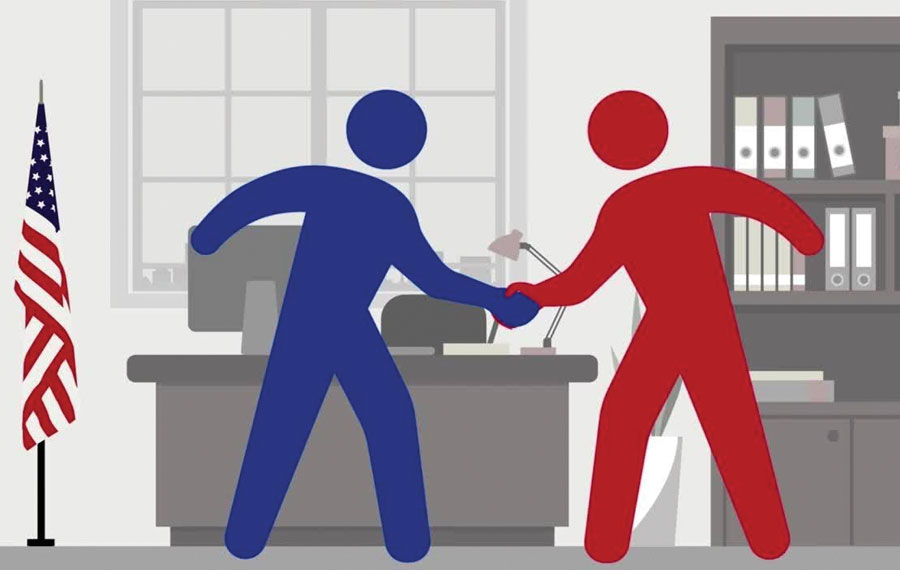
There was a point during the argument when the crowd seemed to clam up. The panelists were so passionate that it made everyone uncomfortable. As the moderator, I tried to stop the verbal slugfest, but it was useless. I surrendered to the moment.
I was moderating a panel at the annual Israeli-American Council (IAC) conference, which was held this year in Hollywood, Fla. The subject was Israel’s controversial Nation-State Law, which recently passed in the Knesset.
If you’ve been following the debate, you already know it’s been highly divisive. Critics charge, among other things, that the law denigrates minorities and undermines Israel’s democracy, while supporters counter that other laws already defend minority rights and that the new law is necessary to affirm and codify Israel’s Jewish character.
There were four panelists, but the two key combatants were Israeli professor Yifat Bitton and Israel Hayom senior commentator Dror Eydar. While they agreed about the fundamental value of Israel’s Jewish identity, they clashed over the law’s necessity — and did so emotionally.
As Ron Kampeas wrote in JTA about the session, Eydar and Bitton “wouldn’t let the other finish a sentence, veering all over a virtual highway of emotive issues, including who is a Jew and paying non-Jewish Israeli soldiers the honor they are due.”
Kampeas even noticed something I didn’t: “As the volume increased … someone in the audience started singing ‘Hineh Ma Tov Umah Naim’ (‘How good and pleasant it is when a tribe of brothers comes together’).”
“All too often, what I’ve seen in heated debates is that someone will try to “win” by denigrating or labeling an ideological rival. … In my IAC panel, the passion was funneled into the argument, not into personal attacks.”
Hmm, good and pleasant? I imagine the singer must have had tongue planted firmly in cheek.
I had mixed feelings about the session. First, while I value passion, I also value inner struggle. I was hoping one of the panelists would have captured the complexity of the debate itself. In the heat of the moment, however, there was little room for self-doubt. Certainty ruled.
Second, I was reminded again of the “CNN panel effect.” When a handful of pundits sit around a table to discuss complicated issues, and they have under a minute to make a snappy point, how likely are they to capture nuance? The best we can hope for is that panelists will plant seeds of complexity that the viewer will be encouraged to investigate.
Which brings me to what I did like about the panel: Nobody used labels instead of arguments. All too often, what I’ve seen in heated debates is that someone will try to “win” by denigrating or labeling an ideological rival. The worst examples are labels such as “racist” or “sexist.” In my IAC panel, the passion was funneled into the argument, not into personal attacks.
In fact, the only time a label was introduced was when Eydar stood up to mention that Bitton was actually a “close friend.” I think he didn’t want the audience to misinterpret disagreement with animosity. Bitton herself responded by telling the crowd that, yes, they were indeed close friends, and that their political differences had no bearing on the continuation of their friendship.
The notion of engagement without “labels” is the theme of our cover story this week.
Our New York writer, Karen Lehrman Bloch, reports on a fledgling movement that is trying to bring a problem-solving mentality to a deeply divided Congress. Our story focuses on one of the leaders of this movement, Nancy Jacobson, who several years ago founded the No Labels organization. As a veteran of the political scene in Washington, D.C., she decided that the best way she could help her country was to push relentlessly for a greater sense of bipartisanship.
“Nancy Jacobson’s dream is a great dream: To have U.S. politicians look at one another with only one label in mind, the label of Americans who want what’s best for their country.”
A key part of the movement is the very name, No Labels. After all, what better starting point to bridging differences than to focus on what people are saying rather than the political label of the people saying it?
I know what you’re thinking: Good luck. Our politics and politicians seem divided beyond all hope. And you may be right — in my cynical moments, I often think the same. Still, it’s worth paying attention to dreamers, especially dreamers who have the savvy to make things happen. Jacobson is one of those people, and she’s making headway.
Her dream is a great dream: To have U.S. politicians look at one another with only one label in mind, the label of Americans who want what’s best for their country.
And if they can argue passionately about a controversial law and still be close friends, so much the better.























 More news and opinions than at a Shabbat dinner, right in your inbox.
More news and opinions than at a Shabbat dinner, right in your inbox.